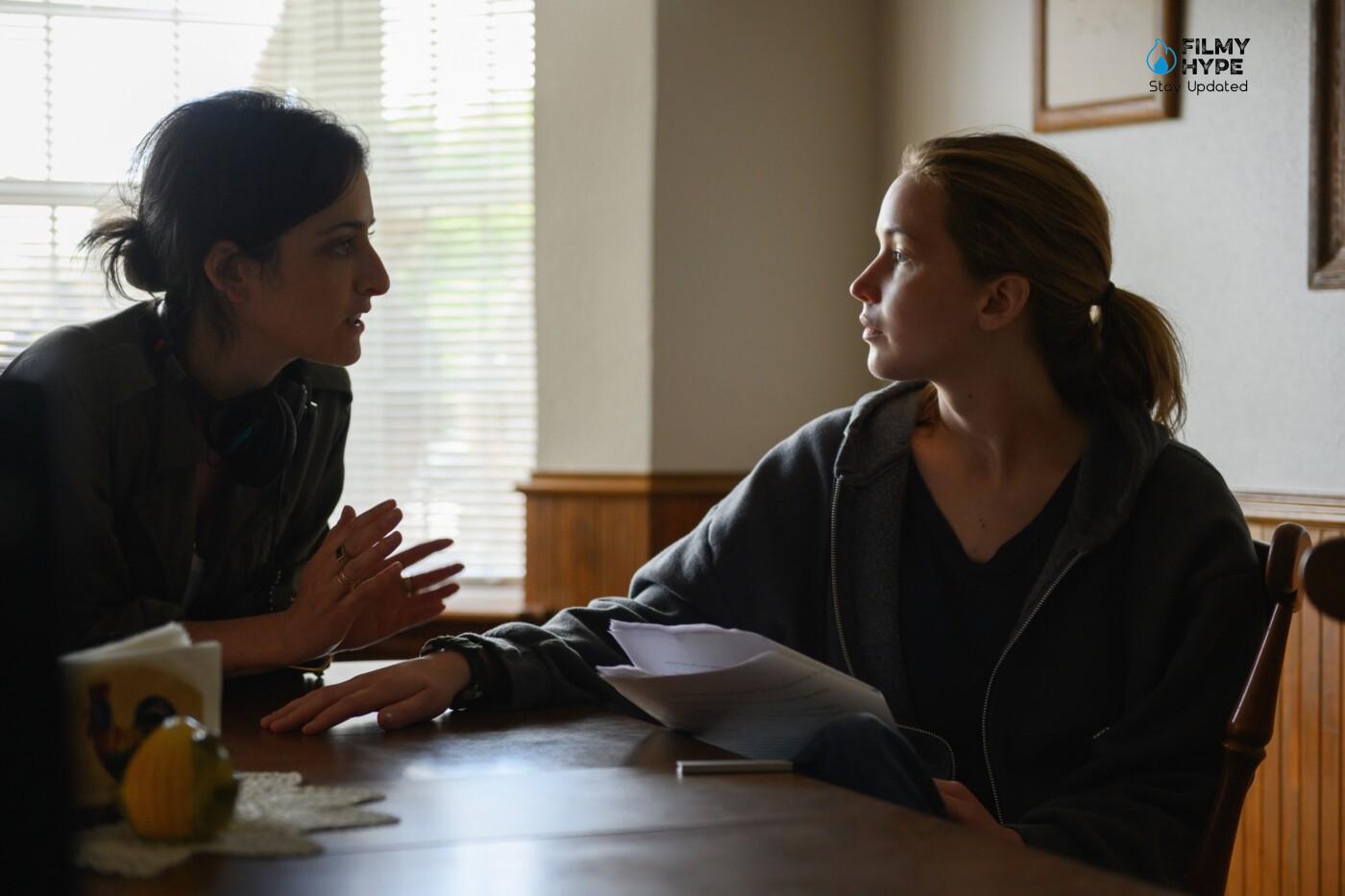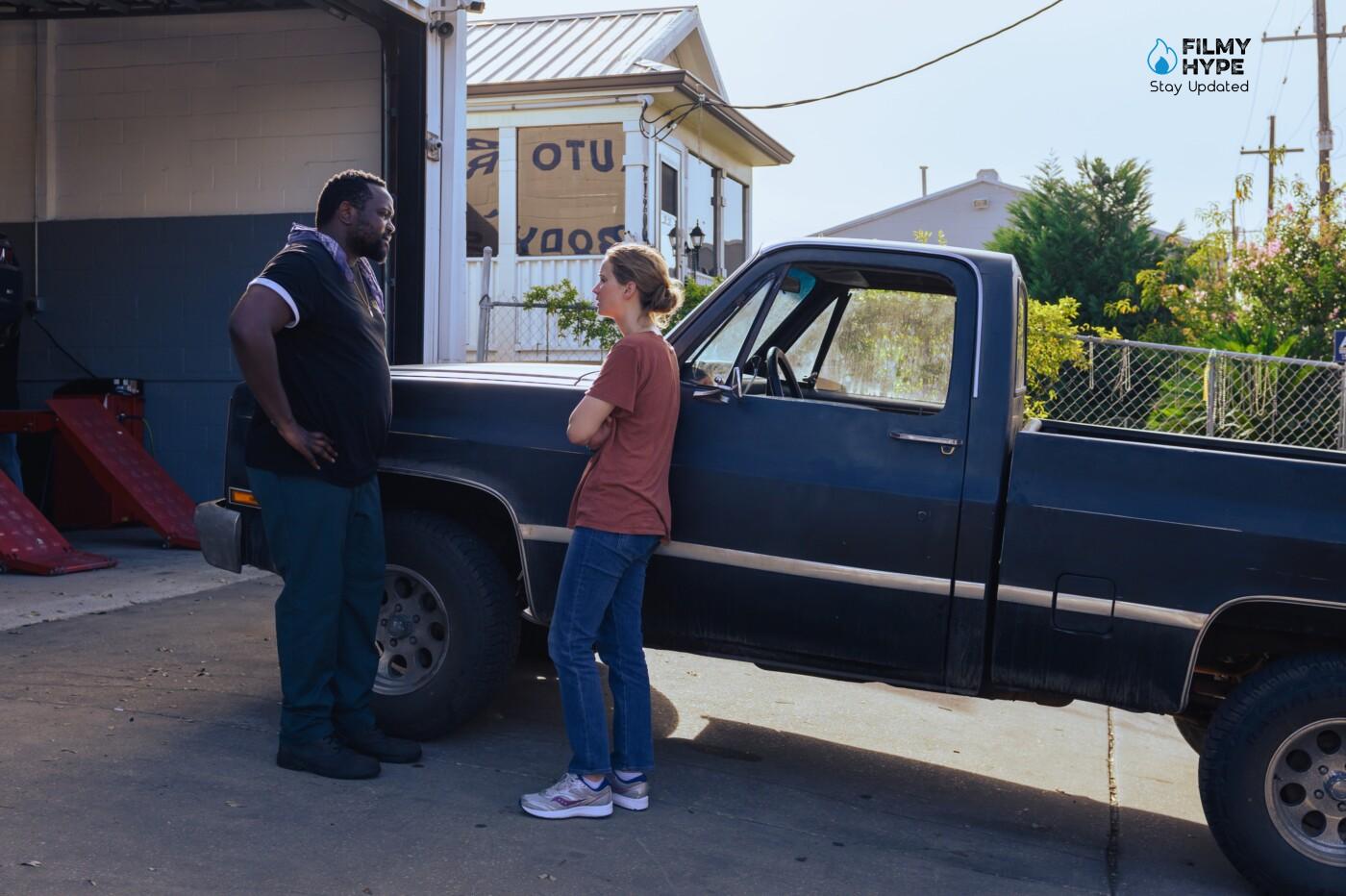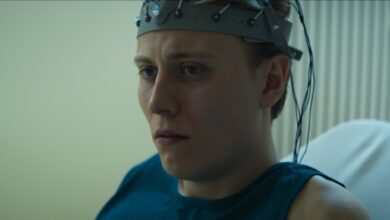Causeway Review: Painful and Delicate Story Of Two Wards Of Society That Meet Causally To Learn Over Time
Cast: Jennifer Lawrence, Bryan Tyree Henry, Samira Wiley, Stephen McHinley Henderson, Jayne Houdyshell
Director: Lila Neugebauer
Filmyhype.com Ratings: 3.5/5 (three and a half stars)
Jennifer Lawrence is back in the game with Causeway, which premiered at the Rome Film Fest 2022, and will be available from November 4 on Apple TV+. Handing his acting baggage into the hands of director Lila Neugebauer, who has been able to give an incisive cut to the dramatic serial production – her directing some episodes of the miniseries Maid (2021) – Lawrence crosses a suspension bridge between his most female interpretations. bold, Mother! by Darren Aronofsky, in which her figure was bent to symbolic will, and emotionally more likely ones, like the one in the movie The Positive Side, which earned her first Oscar.

In our Causeway review, we will delve into Lila Neugebauer’s film by explaining how this delicate original screenplay tells the present state of provincial America in a deeper way than what appears on the surface, amidst echoes of wars that never ceased and wounds to the body. and of the soul never healed. In search of salvation that will come most surprisingly. Formerly the behind-the-camera author of TV episodes of series such as Maid and Room 104. Written by Elizabeth Sanders. Luke Goebel and Ottessa Moshfegh, Causeway is the delicate and moving tale of two misfits of contemporary American society whose chance encounter will change the lives of both in a tender and unexpected way.
Causeway Review: The Story
Lynsey (Jennifer Lawrence) returns home after suffering a major brain injury from a bomb while stationed in Afghanistan. Her return, however, will not be the best of her, between a very hard motor and psychological rehabilitation and her desire to readjust to everyday life; an unexpected meeting with the mechanic James Aucoin (Brian Tyree Henry), however, will slowly change her life for the better thanks to the tender relationship of trust that will be established between them.
From these intense premises was born Causeway, the first feature film directed by an American director and the return of the Oscar winner Jennifer Lawrence to indie cinema, which more than ten years ago had given it an unexpected success. Here the interpreter engages in one of the most complex roles of her career, albeit varied, struggling with a young soldier forced to learn to live again against the backdrop of a provincial America that is opaque and indifferent to the pain of its protagonists.
Causeway Review and Analysis
The elaboration of Lynsey‘s trauma passes above all through the rediscovery of a new idea of the family unit; the shortcomings and disagreements of a past of which we are not explicitly told so much, but we guess from the circumstantial factuality, are progressively healed by the fortuitous encounter with those who have experienced something very similar to our pain, the character of James, played by a Brian Tyree Henry in a state of grace. In the consolidation of an unprecedented bond that does not need to be labeled, Causeway finds more narrative vigor, joining the streets of two characters who make us discover a new facade of New Orleans: that of those who remain on the edge of the festivity that characterizes the atmosphere and of which the cinema has flooded us, putting the adaptation efforts of those who struggle against a system that is emotionally never inclusive enough.
Perhaps the traumas that grip us most do not correspond to those that have greater concreteness, to those attributable to an understandable malaise and that combine physical and psychological difficulties. The wounds often go backward and the flight to an inhospitable and dangerous place, where no one would ever take refuge, could be the only outlet of a bridge that seems too long to cross. Lynsey will continue to act in front of the others while maintaining a very rigid posture – an excellent acting performance for Lawrence to get rid of the burden of having to justify the inexpressible, an iron will that no one in the circle of New Orleans can understand. Only when someone arrives who does not look at plans, but rather at the flow of the present and trying to hold it back to review their past, we can listen to others, evaluate more options, feel free to choose, and give space to our definitive declaration. of intent.

Neugebauer’s debut at the cinema is a feature film with a strongly dry character, drained of any obvious emotion, all intelligently constructed on the frequent and effective close-ups of the two protagonists. In particular, to better tell the story of the rehabilitation of Lynsey’s body and soul, the face Jennifer Lawrence thinks about it; hollowed out and without a trace of make-up, that of the young soldier returning home after the trauma suffered is the perfect geographical map of the wounds of the heart that carries inside the woman far beyond her fatal room in Afghanistan. After all, it is the same thing that happened to the mechanic James, forced to walk with the latest generation prosthesis after losing his leg due to a terrible car accident with terrifying results.
Perhaps it is precisely here that Lila Neugebauer’s Causeway hits the most deadly and effective blow, knowing how to tell with a great sense of humanity and empathy the unexpected encounter of two souls in search of healing of the body but above all of the soul. A couple of real “wastes of society”, which seem unwilling and unable to belong anywhere, to any person, trapped as they are in their prisons of mind and heart. Causeway does not reach the expressive peaks of Maid, where visual simplicity and narrative compactness come together perfectly, but it is confirmed as an interesting work by a director who knows how to work very well with her protagonists, making them physical vehicles of multiple levels of reading of the stories they seek. mainly in the likelihood of a connection with one’s public.
When the courage to go on will reveal itself in the form of a blue swimsuit with which we dive into the pool and which replaces the black underwear that Lynsey wears throughout the film; when we understand that the time has come to reconnect with our element to shake hands with those we have found, perhaps then we can see the end of our bridge, never forgetting that in the past we were able to hold our breath for a long time without floundering, and maybe we are even now.
Causeway Review: The Last Words
Causeway does not reach the expressive peaks of Maid, where visual simplicity and narrative compactness come together perfectly, but it is confirmed as an interesting work by a director who knows how to work very well with her protagonists, making them physical vehicles of multiple levels of reading of the stories they seek. mainly in the likelihood of a connection with one’s public. Lila Neugebauer’s first film as a director is the painful and delicate story of two wards of society that meet causally to learn over time to heal the wounds of their past, both physical and psychological. An excellent directorial debut supported by two intense Jennifer Lawrence and Brian Tyree Henry.






